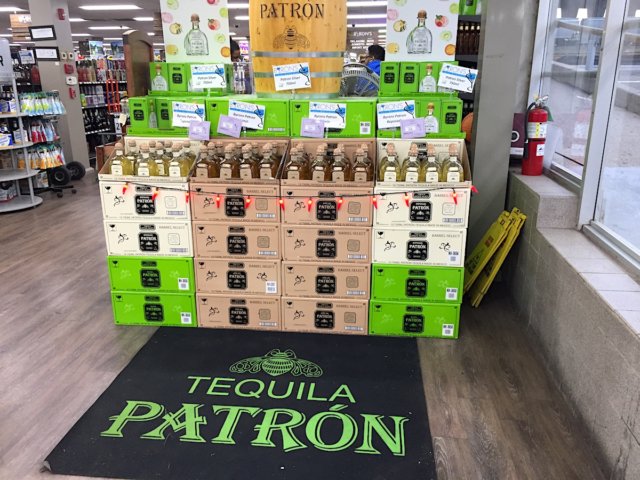

(Update: This story was updated at 7:22 p.m. Thursday, May 3, to note the Senate’s adjournment sine die effective immediately. It was updated again at 8:39 p.m. when the House adjourned sine die.)
While some wondered Tuesday and Wednesday whether successful Oct. 1 implementation of Oklahoma’s new alcohol laws could be in jeopardy owing to legislative disagreement, SB 1173 passed both the Senate and House today as the Legislature rushed to reach an adjournment.
Both the House and Senate adjourned sine die — the end of session — tonight. The Senate adjourned sine die at 7:22 p.m., while the House heard several more bills and adjourned at 8:39 p.m. That leaves Gov. Mary Fallin with multiple decisions about whether she will veto any of the controversial measures passed this week, which some organizations are asking her to do.
Fallin is expected to sign SB 1173 by Sen. Stephanie Bice (R-OKC) and House Majority Floor Leader Jon Echols (R-OKC), which would establish rules necessary for Oklahoma’s transition to single-point beer sales, refrigeration in liquor stores and expanded grocery store sales. Voters who passed State Question 792 in November approved of these changes.
Bice said the bill “absolutely” got too complicated with “too many irons in the fire” that were not immediately necessary for the Oct. 1 compliance date.
“Unfortunately, you had a lot of different factions that were trying to get something in one bill, and not everybody liked all of the language,” Bice said Thursday. “So because of that it made sense to really pull back on it and just run the necessary corrections for statute and then look forward to any changes that need to happen for the next legislative session.”
The bill went from 94 pages to 17 pages, representing the change in legislative strategy Bice discussed. It passed unanimously out of the Senate on Thursday afternoon.
Echols had said Wednesday that failure to take action on the necessary alcohol-modernization regulations would be a problem.
“It [would be] a mistake to not put in the proper regulatory framework to comply with the alcohol modernization that was voted on by the people,” Echols said. “I hope we get it done.”
To that end, Echols added SB 1173 to the House floor agenda shortly after it passed the Senate, and the House advanced it to the governor’s desk.
In explaining why failure to act on the alcohol modernization framework would have been problematic, he referenced the Legislature’s inability to pass a framework for medical cannabis ahead of the June 26 vote on medical marijuana.
“That was a mistake, by the way, to not deal with [State Question] 788,” Echols said.
Brett Robinson, president of the Beer Distributors of Oklahoma, spoke Wednesday about the need to avoid the pitfalls of complex alcohol policy and focus on the changes necessary for an Oct. 1 roll out around the state.
“I understand certain parties had concerns with some of the language in [the original] SB 1173,” Robinson said. “However, there are issues that have to be addressed by Oct. 1.”
The Senate also passed SB 1334 on Wednesday night, which adjusted three lines of statute on the topic of alcohol.
SB 1212: ‘Constitutional Carry’
Late Wednesday night, the Senate spent more than an hour discussing and debating SB 1212, which would create a permitless system of carrying firearms in the state of Oklahoma colloquially called “Constitutional Carry.”
Sen. Kevin Matthews (D-Tulsa) asked several questions about whether law enforcement would be tasked with randomly — or stereotypically — choosing which gun-carrying citizens looked like they might be up to no good.
The bill is before Gov. Mary Fallin, who could use the “pocket veto” option to prevent the bill from taking effect because it was passed during the final five days of the session. That would involve the governor simply not acting on the bill within 15 days, and it requires no explanation. The bill would not become law, and the Legislature would be unable to override the pocket veto.
Many law enforcement organizations, health organizations and business groups have opposed to its enactment. Among others, Oklahoma City Police Chief Bill Citty, the Oklahoma State Bureau of Investigation and the Oklahoma State Chamber have spoken out against SB 1212.
Here is the State Chamber’s official letter on the bill:
 Loading...
Loading...
SB 1140: Religious-based adoption
Similarly, Fallin will have to make a decision about whether to sign SB 1140, a controversial bill that would allow state-contracting adoption agencies to deny applications from couples — such as same-sex couples — if they believe it violates their religious beliefs.
“We are not banning same-sex adoption with this bill,” Senate Floor Leader Greg Treat (R-OKC) said while presenting SB 1140 on Thursday morning. Multiple Republican senators joined him in debating in favor of it, arguing that the government should avoid forcing private religious organizations to do certain things.
Arguing against, Sen. Kay Floyd (D-OKC) said she doesn’t want the tentacles of the government in her private life, either. She asked that the bill be amended again – as it was in the House – to prohibit discriminating religious organizations from receiving public money.
Matthews agreed.
“If we don’t want the government in our churches, we shouldn’t be funding these entities if we don’t want the government there,” Matthews said.
The bill passed the Senate on Thursday morning and was heard by the House on Thursday afternoon. Having passed both bodies, it heads to the governor for consideration.
Defenders of same-sex marriage rights have warned that they believe the bill is unconstitutional and are considering legal action if it is signed into law.
When SB 1140 received its final approval on the House floor Thursday around 5 p.m., tempers flared as House Republicans used procedural motions to avoid questions or debate on the measure.
(Editor’s note: The Beer Distributors of Oklahoma have provided beer for past NonDoc functions.)




















